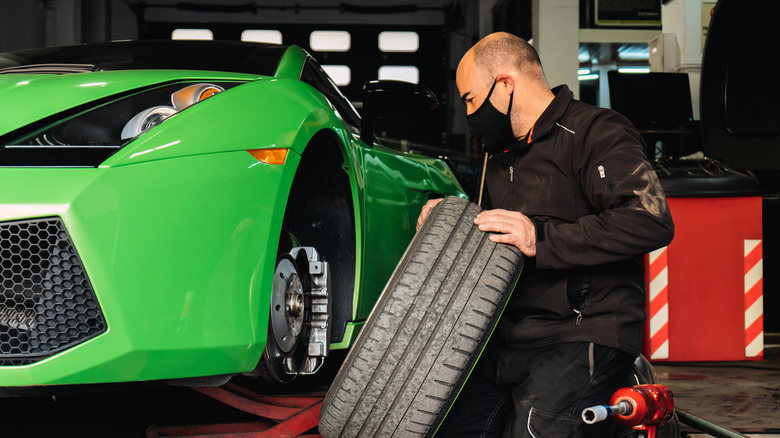
For owners of luxury and classic vehicles, securing an appropriate insurance policy might be nearly as crucial as adhering to proper upkeep routines or maintaining the cleanliness of the vehicle In case of a malfunction or incident, exotic car insurance policies provide several important advantages that assist owners in covering the expenses required for necessary repairs. Nonetheless, not all vehicles meet the criteria for these types of policies.
To be eligible for most exotic insurance policies, your vehicle must be more intricate or costly to repair compared to the average car on the streets. Often, insurance companies do not maintain a specific roster of makes and models falling under this classification; therefore, owners of such vehicles might find themselves qualifying. rare or one-off cars It’s possible to be eligible for exotic car insurance even if your vehicle isn’t from a traditionally exotic brand. To determine whether your car fits into this category, assess the additional benefits provided under an exotic policy and see if they could enhance your coverage. Should these extra features seem beneficial for your car, it likely meets the criteria for specialized insurance.
Read more: 8 Car Enthusiasts' Picks That Are Ridiculously Overhyped
Why Should You Pay for Insuring an Exotic Car?

A major distinction between exotic and conventional insurance policies lies in how they determine the worth of insured vehicles at the outset. Exotic policies typically establish a fixed valuation for your car right from the start of the agreement period. Should an incident occur resulting in total loss, this predetermined sum would represent what the insurer commits to paying out. affected by depreciation . The car's value doesn't necessarily have to correspond to a standard insurer's book value either — instead, owners and insurers can agree on a set valuation based on each individual car.
Exotic car policies will often also cover the costs of importing parts from overseas, and if the car is an older exotic, can also account for any extra costs associated with finding rare original parts domestically or internationally. Some policies also let owners pick a mechanic of their choice. Paying for a specialist exotic policy can potentially save owners money compared to buying a comprehensive policy from a standard insurer, but there are extra restrictions that usually apply.
Is My Vehicle Considered an Exotic?

Many exclusive policies typically only provide coverage for specific trips such as transporting vehicles to exhibitions, leisurely drives over weekends, or sporadic everyday usage. If you intend to regularly commute using your Lamborghini or Porsche—even if it meets the criteria for being classified as an exotic—you generally require a conventional insurance policy. An additional typical requirement is that this high-end automobile should be treated as a supplementary vehicle, implying that its owner needs to have another car available for routine travel and regular driving tasks.
The exact guidelines for what constitutes an exotic vehicle will vary between providers. In general, though, the car needs to be exceptionally expensive to repair and highly unusual to see on the road. Rare imports, high-end supercars, or pristine classics can all potentially fit under that umbrella. So, if your car fits into any of those categories, it might be worth considering a specialist exotic insurance policy.
Want the latest in tech and auto trends? Sign up for our complimentary e-newsletter. For the most recent news updates, detailed guides, and practical advice, delivered once per email.
Read the original article on WELLNESSINVESTIGATOR .
Post a Comment for "How to Get Insured for That Dream Exotic Car"